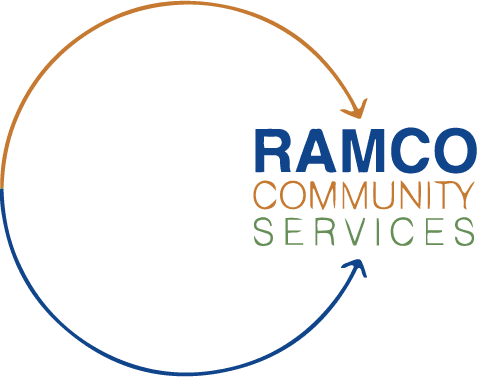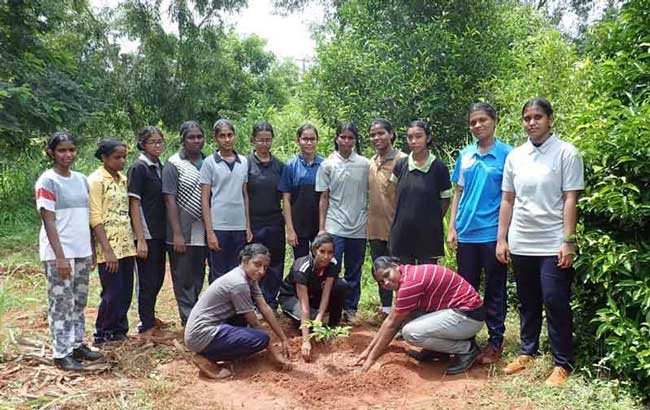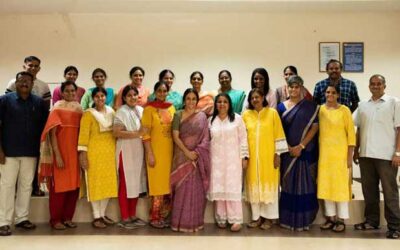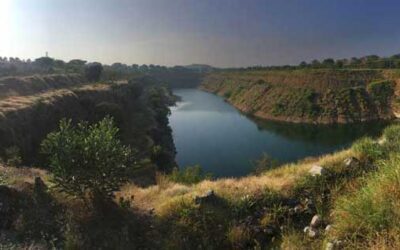Conservation of the Tropical Dry Evergreen Forest of South India
In collaboration with: Auroville Botanical Gardens
Area of action: Environment
Start of the project: 2021
Table of Contents
Project
Updates
Project
A unique ecosystem to preserve
The Tropical Dry Evergreen Forest (TDEF) of South India is a unique ecosystem. It is made up of a complex group of over 400 woody species adapted to the lowest annual rainfall of any tropical dry evergreen forest in the world. This forest is home to a number of rare, or threatened species such as Hildegardia populifolia, Drypetes porteri and Pterocarpus marsupium. The widely distributed flowering and seeding times amongst the species also means that it is an excellent habitat for many animal and insect species, including important pollinators such as species of bee.
An endangered forest type
It is also the most endangered of all Indian forest types with less than 5% of its range, around 25,500 km2, with remnant vegetation. Additionally, less than 5% of these remnants are remaining in anything near to pristine condition as the majority of them are secondary forest regrowth areas, having been cleared in the previous century as woodlots. Further pressures on the TDEF is brought about as this area is both heavily populated and agriculturally intensive. Consequently, it is estimated that less than 0.1% of the forest can be considered as a functional ecosystem. This compares with Sri Lanka, where it is recorded that 37% of the dry evergreen forest range is protected.
Implementation of a conservation effort
The Auroville community has a long history of working to conserve this forest type, but more resources are required as the pressure on land and forest increases in India. In order to step up the conservation efforts for this forest type, a multi-dimensional conservation effort is being implemented.
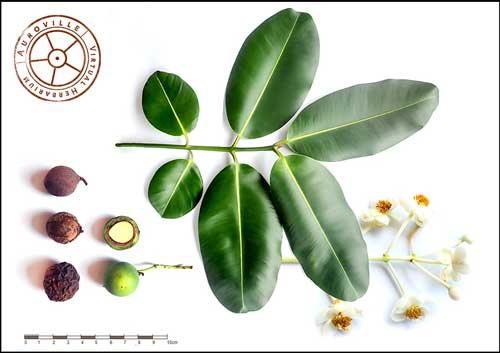
A sample of a Virtual Herbarium photograph sheet
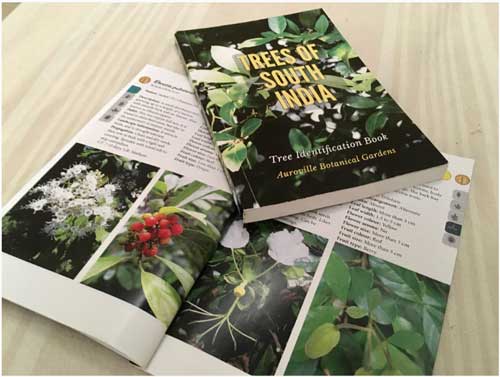
Trees of South India – authored by the Auroville Botanical Gardens
Updates
More Projects…
Ātmaprasāra
Ātmaprasāra is a volunteer-led initiative that provides free and confidential counselling services for those who are looking for emotional support during turbulent times.
Pandalgudi Restoration
Mine restoration provides an opportunity to create an environment that makes a tremendous contribution to the conversation of biodiversity, both with respect to plants and animals.
Farming, Nutrition, Sanitation & Education in ST Hamlets of the Kalrayan Hills
From 2018 on, EcoPro’s rural development project in ST hamlets in the Kalrayan Hills has been financed by Ramco CSR funds.
